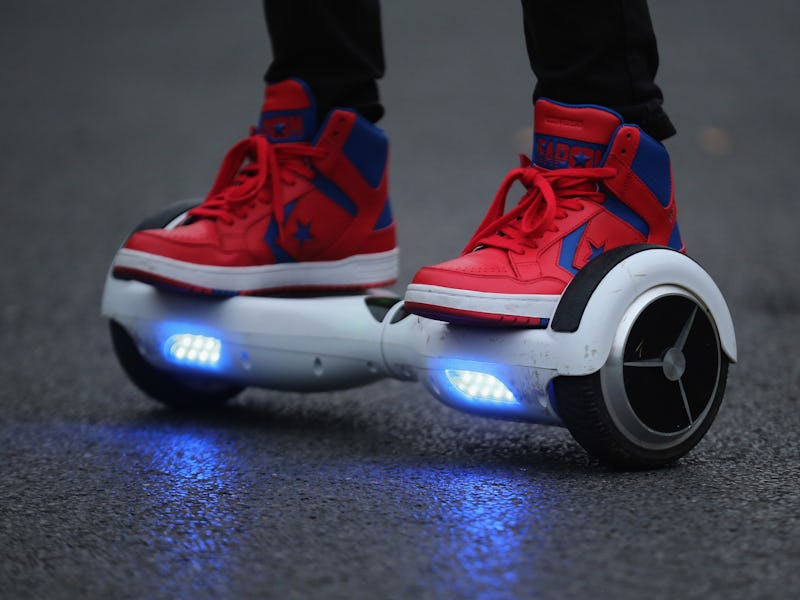Fire Risk Leads to Recall of 500,000 Hoverboards
The U.S. Consumer Product Safety Commission has recalled half a million "hoverboards" because they're a fire hazard.

A hoverboard is more likely to explode beneath you than to actually levitate, and the federal government has decided that it’s not comfortable with that situation.
The U.S. Consumer Product Safety Commission announced today it’s recalling 500,000 hoverboards from 10 companies. “We are urging consumers to act quickly,” CPSC Chairman Elliot Kaye told ABC News. “We’ve concluded pretty definitively that these are not safe products the way they were designed.”
Hoverboards — which don’t actually hover, but instead allow people to ride a perverse hybrid of a Segway and a skateboard — became a sensation in 2015. They were so popular during the holiday season that it was next-to-impossible to find one.
Yet the devices were quickly criticized for their fondness of, well, lighting on fire:
The CPSC warned consumers earlier this year that hoverboards were unsafe, and one hoverboard manufacturer, Swagway, encouraged people not to use its products even though it said they exceeded the CPSC’s safety requirements.
Swagway later said that it didn’t have an official position on the safety of its products. (Which isn’t something you want to hear from a company making a product that you ride or carry and has been shown to spontaneously combust if you so much as look at it the wrong way.)
Some 267,000 products recalled by CPSC were manufactured by Swagway.
So why do hoverboards catch on fire? One theory is that manufacturers are buying cheap batteries to put in their products so they can beat their competition’s prices.
“Battery issues we see are usually the result of cheap, Chinese-branded batteries,” Glitek CEO Tony Le told Inverse. “Cheap batteries with no external or internal protection. It’s a huge cost saving to do the batteries that way. If you use high-end Samsung or LG batteries the price can go up to hundreds of dollars. In China, that’s adding on to a lot of expensive costs, including what they pay for shipping.”
Now those cheap batteries will be heading to landfills — assuming anyone returns their hoverboard — or returning to their factories to be replaced. And just like that, last year’s hottest new fad has been snuffed out in a whiff of smoke.
Metaphorically, at least. Literally, on the other hand, they’re still on fire.